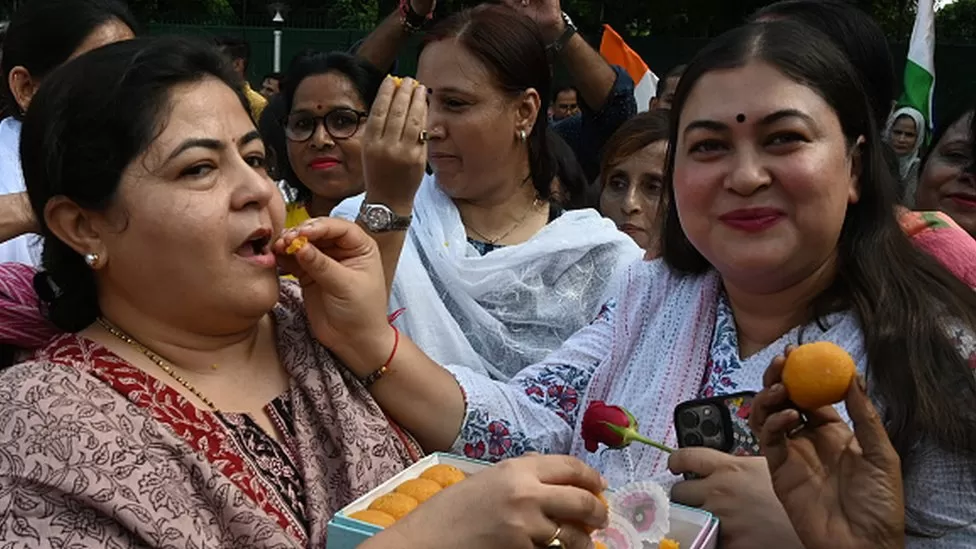The Indian parliament‘s lower house has approved a bill that ensures one-third of seats in the parliament and state assemblies will be reserved for women.
The bill was suggested in 1996 but wasn’t approved for a long time because some political parties didn’t agree with it.
On Wednesday, almost everyone in the Lok Sabha agreed to pass it after a long and intense discussion.
Lawmakers in the upper house of the Indian parliament, called the Rajya Sabha, will need to approve the bill now.
If this is approved, it will be sent to the Indian president and become a law.
However, it is still a long way from being put into action because it relies on India finishing their census.
The exercise is usually done every 10 years. It was supposed to happen in 2021, but because of the coronavirus pandemic it got postponed. Now, it is planned to happen in 2025 instead.
Proposed changes to the boundaries of assembly seats, to increase the total number of constituencies, known as delimitation, could make it even more difficult to put the bill into action.
The BJP, the ruling party in India, hopes that the approval of this law will help them do well in the upcoming elections.
On Wednesday, the Prime Minister, Narendra Modi, expressed gratitude to the Members of Parliament who supported the bill in the Lok Sabha. He described it as an important law that will allow more women to get involved in politics.
The bill got approved when 454 MPs from different political parties voted for it, and only two MPs voted against it.
The Lok Sabha talked about the new law for almost eight hours. Some people from the Opposition spoke up about how it will work, but overall, they still backed it.
Sonia Gandhi, who used to be the president of Congress, said that the party agrees with the planned law but wants it to be put into action right away.
Ms Gandhi asked how many years they would have to wait, will it be two, four, or eight years. Delaying this would be very unfair to women.
Some MPs who oppose the current system have also asked for a special rule that reserves spots specifically for women from the Other Backward Classes.
In the middle, there are many groups of people, considered to be around 52% of the population, called Other Backward Classes or OBCs. India’s census has always included information about the population of Dalits and Adivasis, but it has never collected data on the Other Backward Classes (OBCs).
The new bill suggests that out of all the seats, which are already set aside for Dalits and tribespeople, one-third of them should also be set aside for women. But it doesn’t include a similar rule for women who are part of Other Backward Classes (OBCs).
Ms Gandhi spoke in parliament and suggested that the government should count and gather information on people belonging to different castes, especially those from Other Backward Classes (OBCs). She also proposed that the benefits of the proposed law should be given to women from these groups too.
Some other Members of Parliament from opposing parties said that the ruling party’s action was just pretending to make things better.
MP Asaduddin Owaisi, one of the two votes against the bill, believes that the current bill will only help women belonging to the upper caste.
Date:

